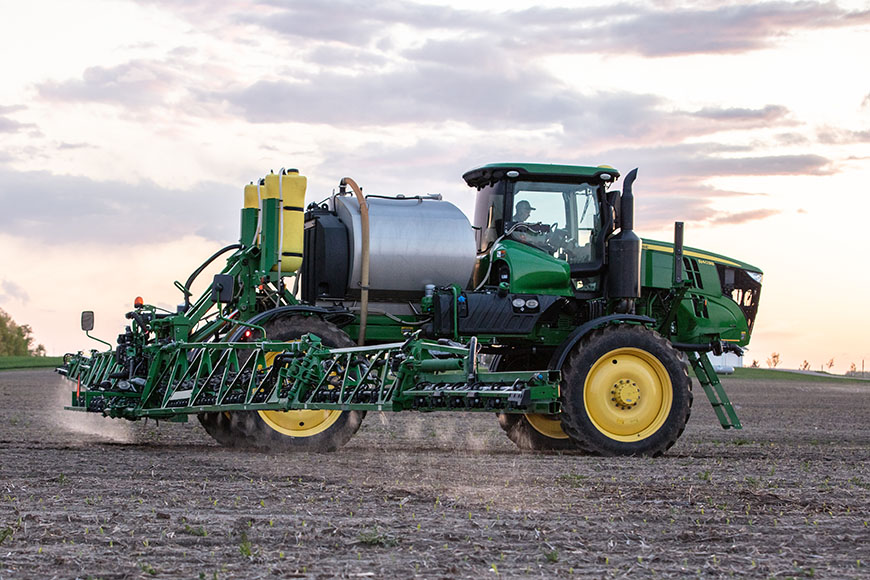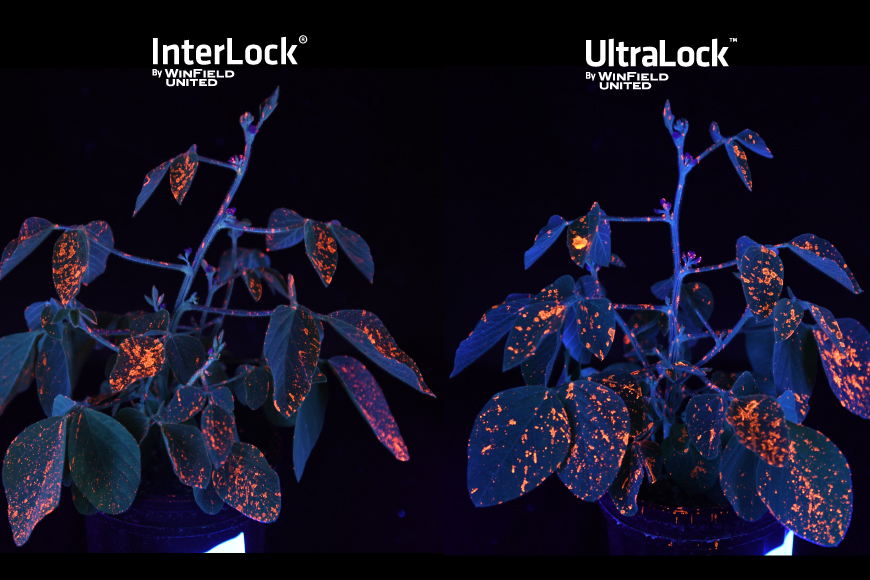Why Water Conditioners Should Be In Your Tank Mix

When you spray an herbicide, not all of its active ingredients make it into the target weeds' leaves. Product antagonism, poor application practices, spray drift, unfavorable weather conditions and volatilization can all contribute to herbicide loss. If half of your weed control investment isn’t working to increase your bottom line, consider ways to improve your herbicide’s performance. One option is an effective water conditioner.
The Science Behind Water Conditioners
In a spray solution, weak acid herbicides can easily dissociate into mono-, di- or tri-valent anions with a negative charge. These negatively charged herbicide molecules are attracted to positively charged mineral salts in the spray solution, including calcium, magnesium, sodium, potassium or iron. Plants do not easily absorb the bound salt-herbicide complex, so herbicide efficacy is reduced if the spray water isn’t conditioned.
Water conditioners are adjuvants formulated to enhance herbicide performance by preventing hard water mineral antagonism of weak-acid herbicides in a spray tank mix. Cations in the soil or on a leaf can also bind to herbicide particles, so water conditioners also help block those interactions to improve herbicide uptake.
Choosing an Effective Water Conditioner
Browse any chemical input supplier’s product list, and you’ll likely see many different water conditioning options. Not all water conditioners are effective with every spray application. If you’re unsure about product selection, work with your local retailer to select the best choice for your weed control needs. Here is some basic information so you can start asking the right questions.
AMS-based water conditioners
AMS water conditioners provide two critical benefits for effective weed control: the sulfate conditions hard water to bind antagonistic cations, while the ammonium improves plant herbicide uptake. AMS water conditioners are recommended whenever you apply a weak-acid herbicide, including glyphosate, glufosinate, Enlist®, 2,4-D amine, clethodim or PPO inhibitors.
Class Act® NG® adjuvant has been a leader in AMS-based water conditioners for more than 20 years. It combines AMS with a nonionic surfactant and antifoaming agent in a liquid premix. The nonionic surfactant in Class Act NG adjuvant improves the spreading and sticking characteristics of the herbicide to improve plant absorption and metabolism, resulting in faster and more effective weed control. Another benefit of Class Act NG adjuvant is that the pre-dissolved liquid AMS alleviates sedimentation and nozzle plugging in the sprayer. Plus, it’s formulated with WinField United CornSorb® technology to help improve herbicide uptake and movement in the plant.
Research conducted by Colorado State University showed that glyphosate uptake in velvetleaf was 2.1 times greater when Class Act NG adjuvant was added to the tank mix compared to glyphosate and AMS alone.2
Acidifying water conditioners
Acidifiers work by lowering the pH and neutralizing salts in the spray solution and are an alternative to AMS-based water conditioners. Although some exceptions exist, many herbicides are most effective in slightly acidic mixtures. If the spray solution is too alkaline or acidic for the herbicide you are using, it may break down faster and be less effective.
For water sources that do not have extremely high water hardness levels, acidifying water conditioners are a viable alternative to AMS-based water conditioners and typically require lower use rates. They are most effective in soft water areas when weed control is timely and weeds are not hardened off. Most often, acidifiers are a component of multi-function adjuvants, like those in WinField United’s OPTIFY® lineup.
OPTIFY L27 adjuvant is a convenient, versatile blend of acidifying water conditioner, AMS and nonionic surfactant designed to optimize pesticide performance at an easy low use rate. OPTIFY L27 is formulated to enhance the performance of tank mixtures containing glyphosate, for use on glyphosate-tolerant crops in soft water areas.
Non-AMS-based water conditioners
If you plan to spray dicamba, you’ll need to explore non-AMS-based water conditioners. Due to increased volatility risk, AMS water conditioners are not labeled for use with in-season dicamba sprays. But you’ll still need to condition water to optimize glyphosate performance with dicamba applications. Non-AMS water conditioners reduce antagonism for the glyphosate tank-mix partner, and a nonionic surfactant helps optimize spray coverage.
Class Act® Ridion® adjuvant is specifically formulated for in-season dicamba applications and is designed to protect glyphosate and other herbicides antagonized by cations in hard water. Class Act Ridion is a dual-chelation chemistry that provides premium water conditioning and includes CornSorb technology, two features that help improve plant uptake and set it apart from other non-AMS water conditioners.
Get Effective Weed Control on the First Pass
Herbicide supply constraints and rising input costs require a more thoughtful approach to weed management. In some cases, you may not have an option for a second herbicide application, or it may not be economical. That’s why it’s critical to use best application practices, including selecting an appropriate water conditioner, to maximize your success on the first pass. Contact your WinField United retailer to find water conditioners that meet your tank mix needs.
1 Colorado State University. Phil Westra research conducted in 2004.
All photos are either the property of WinField United or used with permission.
© 2023 WinField United. Important: Before use always read and follow label instructions. Crop performance is dependent on several factors many of which are beyond the control of WinField United, including without limitation, soil type, pest pressures, agronomic practices and weather conditions. Growers are encouraged to consider data from multiple locations, over multiple years and to be mindful of how such agronomic conditions could impact results. Class Act NG, Class Act Ridion, CornSorb, OPTIFY and WinField are trademarks of WinField United. All other trademarks are the property of their respective owners.





